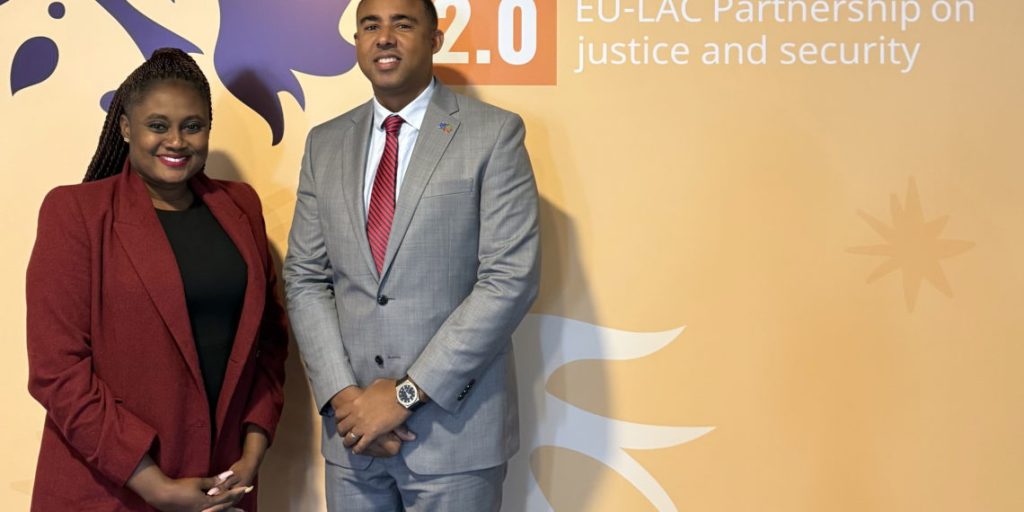Ministry of Justice Secures Over EC$1 Million in International Grants and Technical Assistance for 2025
The Ministry of Justice and Legal Affairs in Saint Kitts and Nevis has embarked on an ambitious and comprehensive reform program aimed at modernizing the Federation’s justice system. This initiative, championed by Attorney General Garth Wilkin and Permanent Secretary Nerissa Williams, has secured over EC$1 million in international funding and technical assistance, demonstrating a commitment to data-driven decision-making, human rights principles, and regional collaboration. The program leverages partnerships with international and regional organizations such as the UNDP, UNODC, EU-funded EL PAcCTO, UN Women, and OHCHR to achieve its ambitious goals. This collaborative approach underscores the Ministry’s dedication to building a justice system that is not only modern and efficient but also deeply rooted in international best practices and human rights standards.
A cornerstone of the reform program lies in the establishment of restorative justice and diversion programs. Funded with over EC$750,000, these initiatives aim to offer alternatives to incarceration, prioritizing rehabilitation and community-based solutions. This includes the implementation of a Community-Based Restorative Justice Pilot and the National Diversionary Caution System. These programs will utilize mediation techniques, police-community training, and new legislative frameworks, including a forthcoming Diversion Bill, to divert individuals away from the traditional criminal justice system and towards more restorative pathways. This focus on restorative justice represents a significant shift in penal philosophy, emphasizing community healing and offender reintegration over purely punitive measures.
Improving access to justice and legal literacy is another key component of the reform agenda. The Ministry is leveraging technology to empower citizens with legal knowledge through the installation of two “VoiceIt” legal access kiosks by September 2025. These kiosks will provide voice-activated, multilingual access to national laws and legal rights, featuring assistive technology for individuals with disabilities. This initiative demonstrates a commitment to digital inclusion and ensures that legal information is readily available to all segments of society, irrespective of their technological proficiency or physical limitations. This focus on accessibility underscores the Ministry’s commitment to ensuring equal access to justice for all.
The Ministry is also investing in capacity building within the justice sector through comprehensive training programs. A Planning, Monitoring, and Evaluation (PM&E) program is targeted at justice leadership, including the Director of Public Prosecutions and the Registrar of the High Court. This program aims to enhance the effectiveness and efficiency of the justice system by strengthening leadership capabilities and promoting a data-driven approach to performance management. Further, a human rights training program, facilitated by the OHCHR, will be implemented for Crown Counsels and Prison Officers in the latter half of 2025, ensuring that international human rights norms are embedded in local practices and that justice professionals are well-versed in these fundamental principles.
Promoting gender-responsive justice is another area of focus. Through collaboration with UN Women, the Ministry is implementing gender-sensitive judicial reasoning and policy tools. This initiative seeks to align national justice delivery with international gender equality frameworks such as the Convention on the Elimination of All Forms of Discrimination against Women (CEDAW) and the Beijing Platform for Action. By incorporating a gender perspective into judicial processes and policy formulation, the Ministry aims to address systemic inequalities and ensure that the justice system is fair and equitable for all, regardless of gender.
The reform program also encompasses broader efforts to modernize the justice system and enhance legal aid services. Through partnerships with EL PAcCTO 2.0 and UNODC, the Ministry is working to improve investigative standards, bolster legislative review capacity, strengthen cybercrime enforcement, and enhance the quality of legal aid services. These initiatives are crucial for adapting the justice system to the evolving challenges of the 21st century and ensuring that legal assistance is accessible and effective for those who need it most. By strengthening these core pillars of the justice system, the Ministry aims to enhance public trust and confidence in its institutions.
The Ministry’s commitment to these transformative reforms aligns with Sustainable Development Goal 16, which emphasizes peace, justice, and strong institutions. These initiatives expand access to justice through digital innovation and community-based alternatives, strengthen legal protections and professional standards, embed human rights into policing and detention practices, and ultimately enhance public trust in the justice system. Looking ahead, the Ministry is developing a Justice Sector Innovation Roadmap to consolidate these efforts and articulate a five-year vision for legal harmonization, technological transformation, and regional cooperation, ensuring that these reforms are sustainable and have a lasting impact on the administration of justice in Saint Kitts and Nevis.
Share this content:












Post Comment